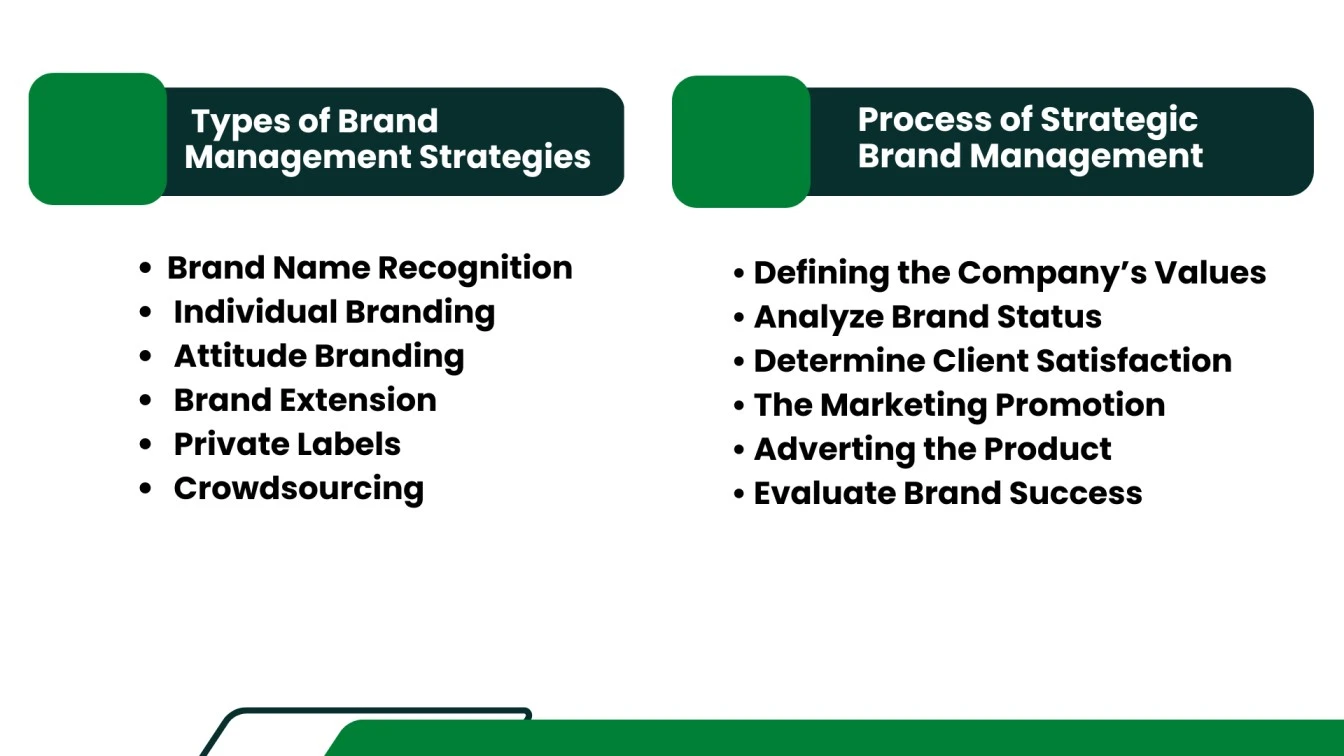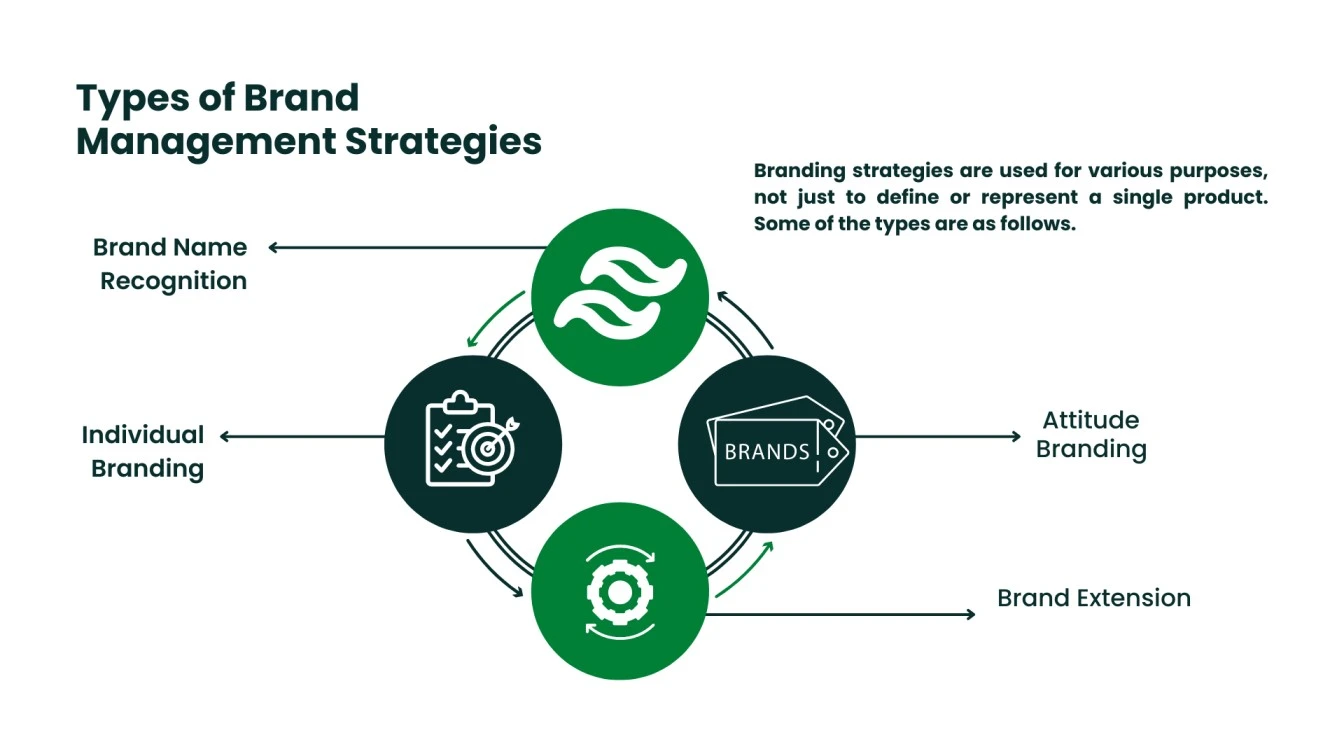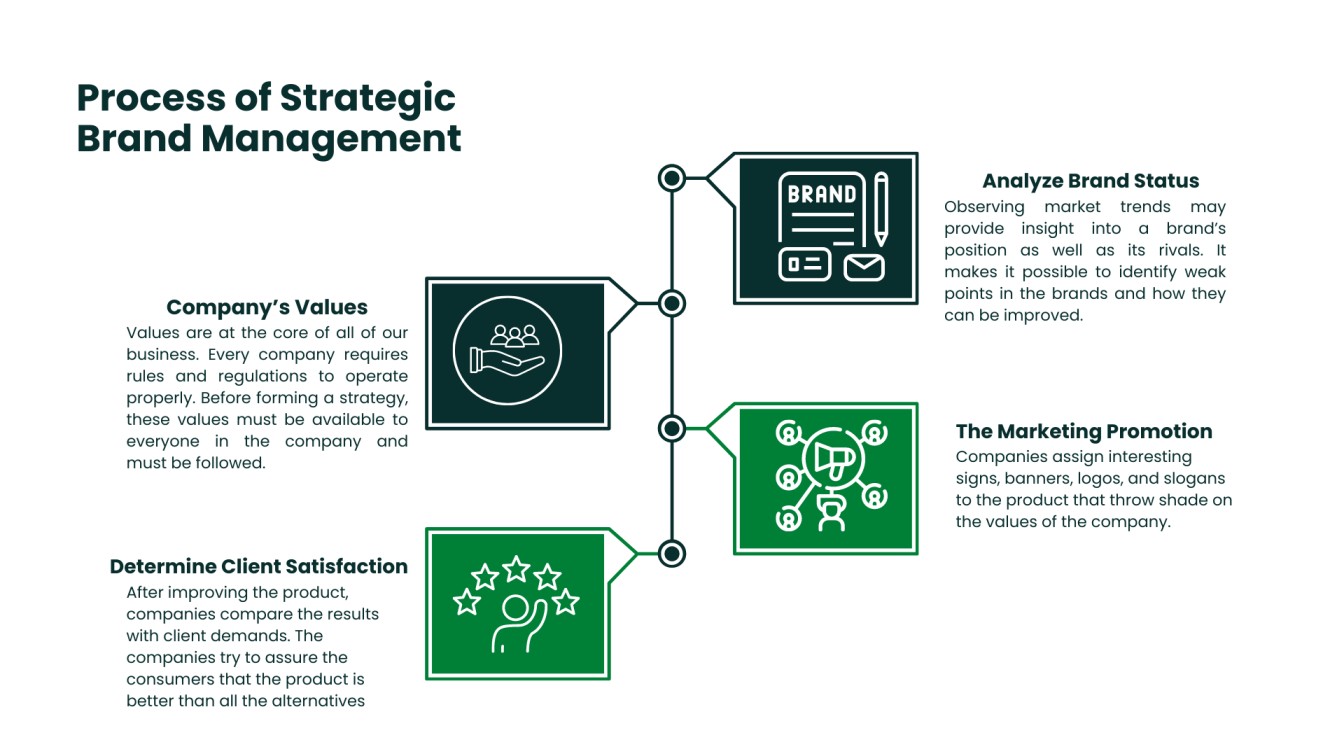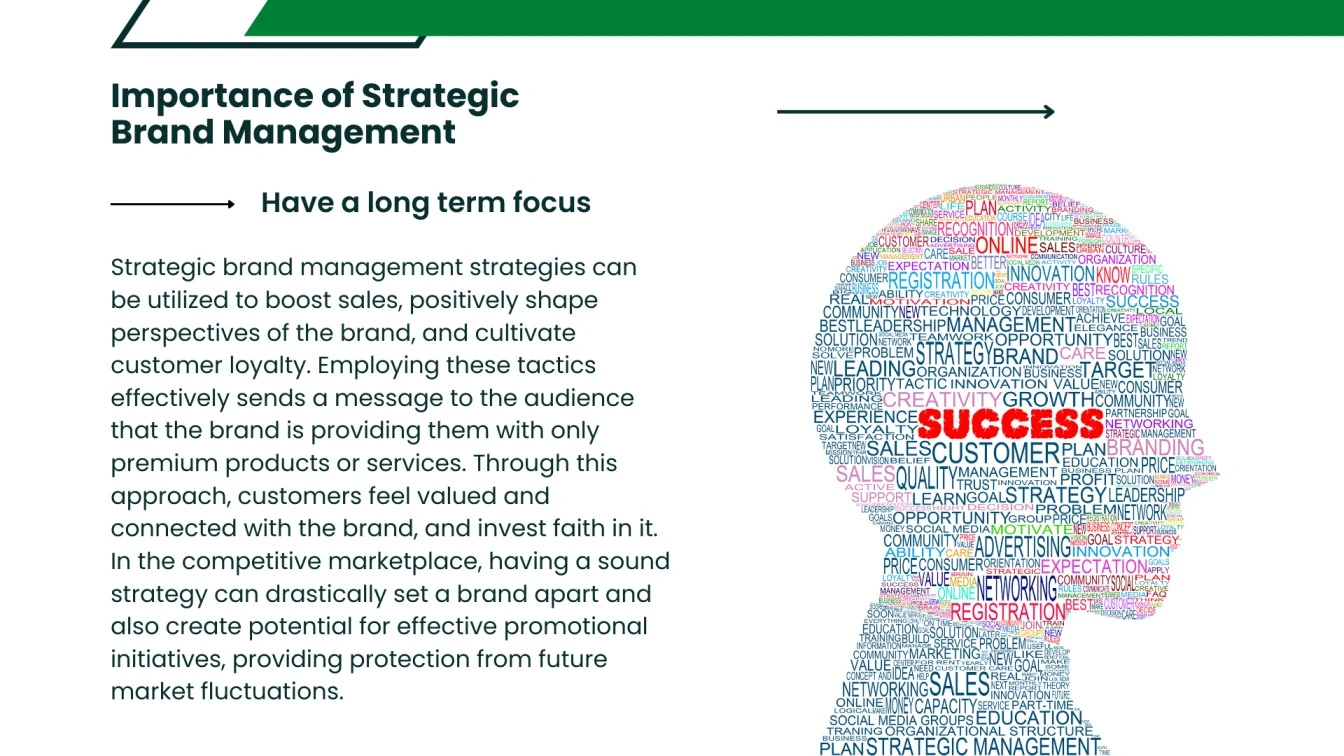
Strategic brand management is the technique used by companies to improve their reputation, increase their annual earnings, and achieve their set goals. Strategic brand management is a long and deliberate process. The goal of the professionals is to come up with engaging ideas to boost sales year-long. These strategies' main purpose is to develop campaigns that will keep the brand under the light. For example, while looking for a product or a service, the consumer’s first choice should be your company. An impressive brand management strategy can take a company a long mile in the longer run. It is a process that tells a story with words and intrigues people to choose the product. Making customers is a relatively easy part, maintaining customers is harder. People expect greatness with every update. Good brand management strategies can help businesses achieve that greatness. It also helps improve the communication gap between consumers and the company.

Types of Brand Management Strategies
Branding strategies are used for various purposes, not just to define or represent a single product. Some of the types are as follows.
The Thought Factory strives to improve your brand’s sales and outlook through strategic management strategies. We will make your audience believe in your brand’s dedication to providing the best possible product. This will result in customer loyalty and comfort while making a purchase. In today’s competitive market, it is essential to have a good strategy in order to stand out and protect your company from the ups and downs of the market. Contact us today to learn more about how we can help you.
• Brand Name Recognition
This strategy is most effective for older and larger companies. Some brands have been in the market for a long time. This gives them an edge because people trust them and have bought their products previously. Companies use different signs and slogans to promote their product.
• Individual Branding
Sometimes businesses may have several different brands under one parent company. To avoid confusion individual branding is done to create a distinctive identity for the product.
• Attitude Branding
This type of branding is indirect. It relates the feelings of the consumer to the brand’s products. Enticing signs or catchphrases are used to induce attitude branding.
• Brand Extension
This strategy helps create new and upgraded products under the already existing brand name. Improved quality or quantity of the product attracts customers and increases the company’s sales. Brand extension can also mean that the company decides to launch a unique product that is one of its kind.

We are the agency of record for companies that see marketing as a bridge
• Private Labels
Private labels are usually used by supermarkets and retail stores. These retailers formulate the same products as the flagship brands and sell them at a lesser price. Retail stores profit both ways by selling brand products and their products.
• Crowdsourcing
By this method, companies involve the local people in their product development. The enterprise may launch new variants of the product and observe its success in the market. Another way to assess consumer demands is to hold a competition and let people give suggestions for the betterment of the product.
Process of Strategic Brand Management
Every brand needs a unique outlook to become popular among the people. A company needs to develop a distinguished brand management strategy to compete in the modern world. The strategic process is composed of some steps which are as follows.
The Thought Factory strives to improve your brand’s sales and outlook through strategic management strategies. We will make your audience believe in your brand’s dedication to providing the best possible product. This will result in customer loyalty and comfort while making a purchase. In today’s competitive market, it is essential to have a good strategy in order to stand out and protect your company from the ups and downs of the market. Contact us today to learn more about how we can help you.
• Defining the Company’s Values
Values are at the core of all of our business. Every company requires rules and regulations to operate properly. Before forming a strategy, these values must be available to everyone in the company and must be followed. The company’s core values should be product quality, customer satisfaction, and targets for the future.

• Analyze Brand Status
Observing market trends may provide insight into a brand’s position as well as its rivals. It makes it possible to identify weak points in the brands and how they can be improved.
• Determine Client Satisfaction
After improving the product, companies compare the results with client demands. The companies try to assure the consumers that the product is better than all the alternatives.
• The Marketing Promotion
Companies assign interesting signs, banners, logos, and slogans to the product that throw shade on the values of the company. These signs should match the theme of the product. Assigning the wrong colors to the wrong products can have a negative impact.
• Adverting the Product
Companies advertising campaigns on television and film commercials, radio, social media platforms, and billboards. The marketing team tries to deliver the theme of the product along with the company’s values in these commercials.
• Evaluate Brand Success
After marketing and releasing the new product, companies keep an eye out for customer feedback. Social media reactions can help gauge the popularity of the product. It also helps to determine in what group is the product more popular.

Importance of Strategic Brand Management

Strategic brand management strategies help increase sales and improve the outlook of the brand. These strategies make the audience believe that the brand is doing its best to provide them with the finest product. This helps create customer loyalty and makes people feel at home while buying the product. It’s a cold war out there. A lot of companies might be providing the same products or services. Having a good strategy can help depict the brand in the best possible way. It also makes more room for a good marketing campaign and protects the company from the ups and downs of the market.



